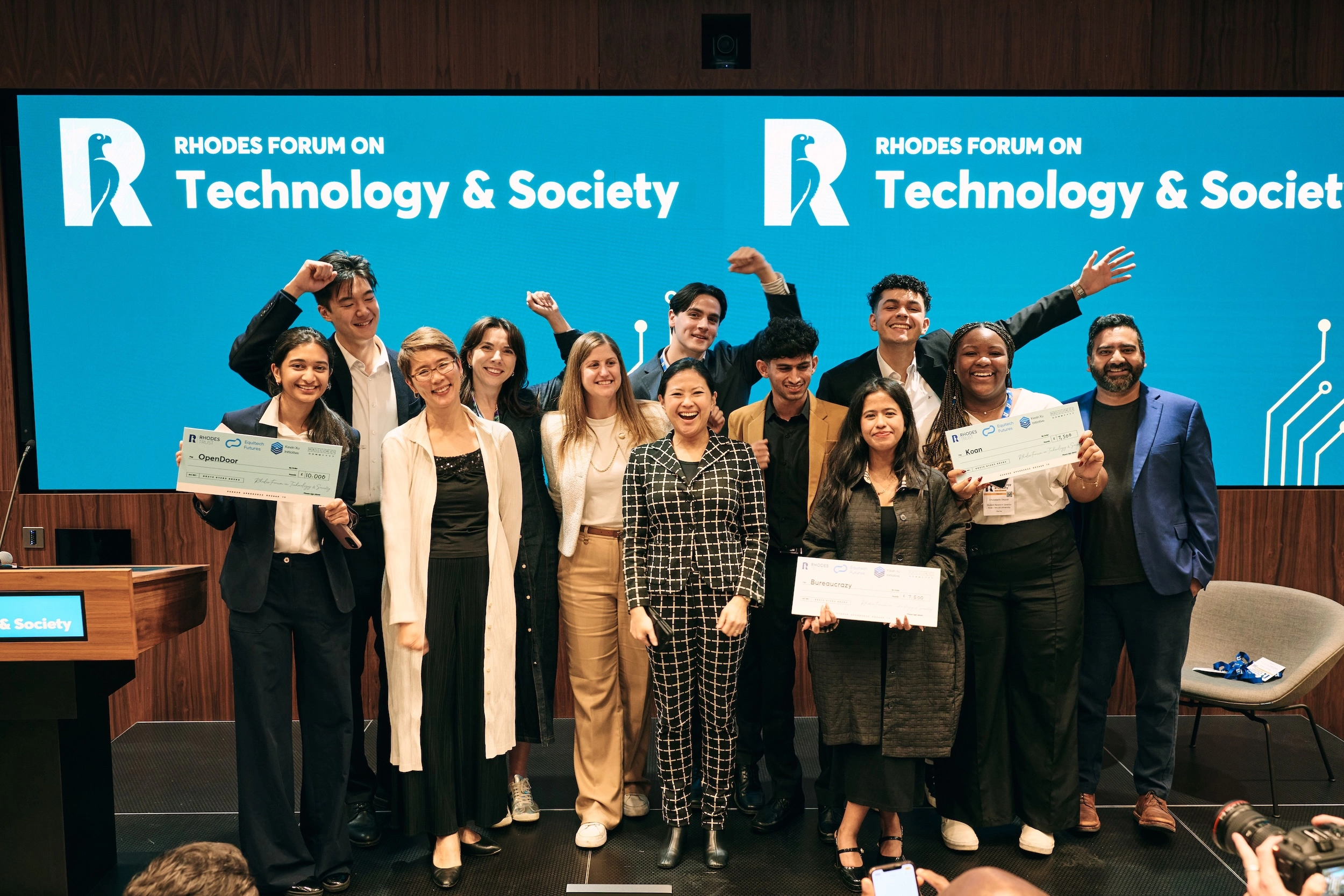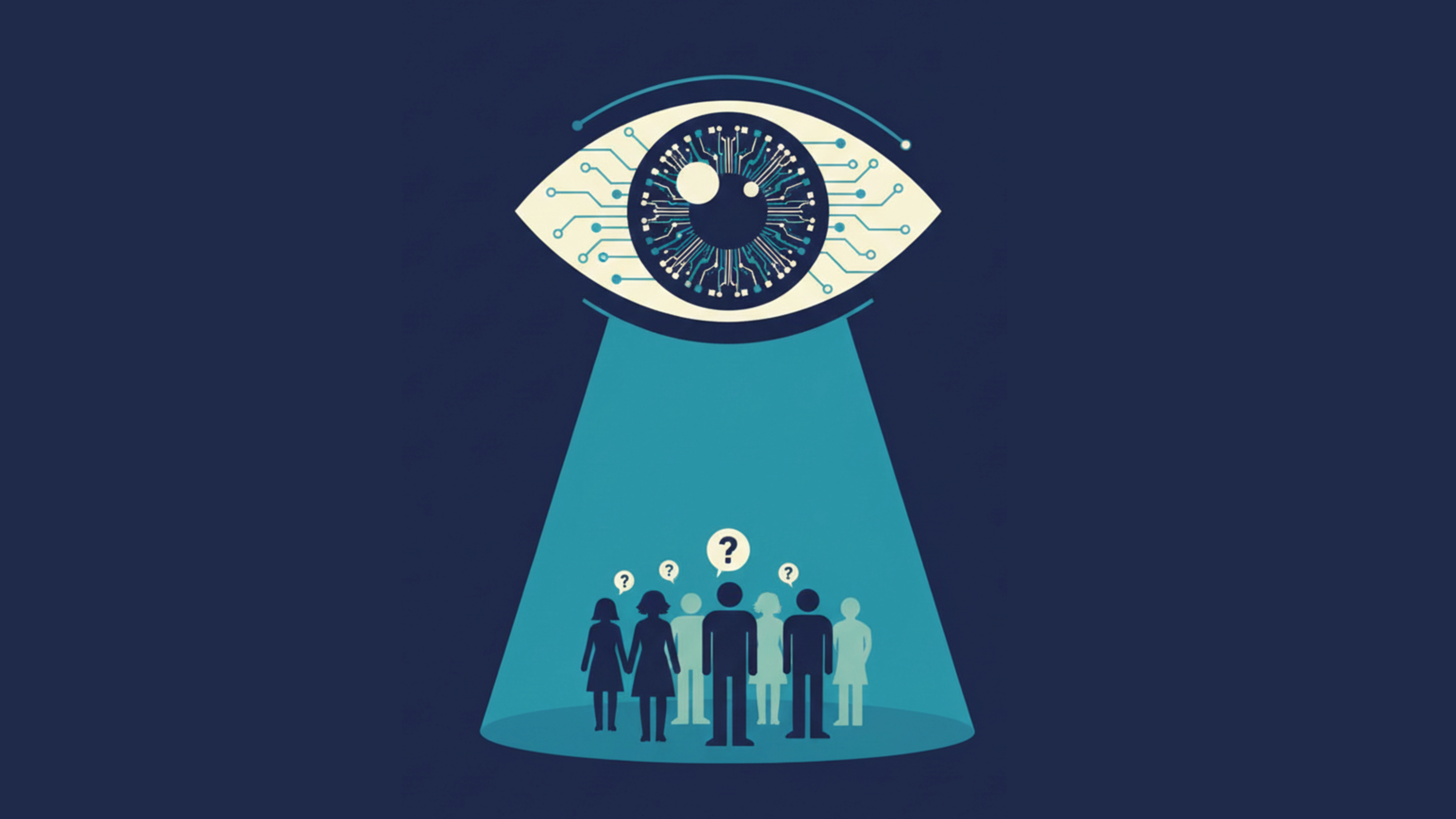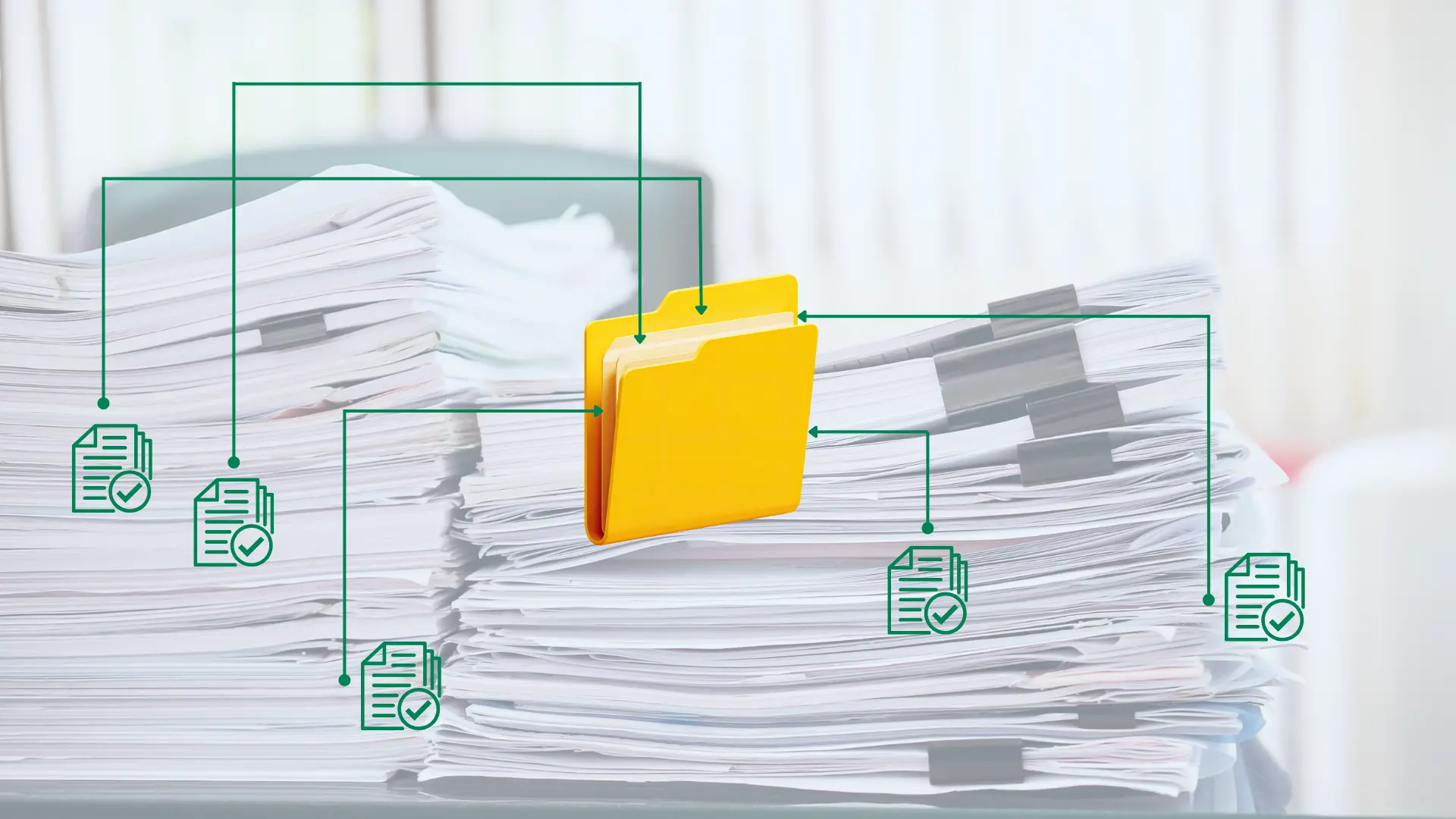
Newsroom
Building Democracy's Digital Backbone: How Nepali Gen Z is Making Bureaucracy Less Crazy
Oct 17, 2025
5 min read
When your government's records are stuck in filing cabinets and your generation is demanding change, sometimes you have to build the civic infrastructure yourself.
Four months ago, a group of gap-year high school students in Nepal started building a chatbot to answer a simple question: How do I get a government document without losing my mind?
Today, Bureaucrazy has become something far more urgent—a lifeline for tens of thousands of young Nepalis trying to register to vote in the wake of a revolution they helped create.
The Problem: When Google Can't Help You
"Navigating bureaucracy in Nepal is painful," explains Aayusha Shrestha, a product manager who joined Bureaucrazy as a mentor. "Getting something as simple as a letter from the government is very, very difficult. You can't easily find information anywhere. It's not that you can Google it and then you'll get all the information."
The reality she describes will sound familiar to anyone who's wrestled with government paperwork, but the scale is different. In Nepal, even basic information—what documents you need, which office to visit, what forms to fill out—lives primarily in people's heads and in hard-copy files tucked away in government offices.
"You end up asking around your family, your friends who've done it before," Aayusha continues. "You go to the offices prepared. Turns out on the day of, you don't have all the documents. You're going from one counter to the other, only to end up going to the same place three times throughout the week."
For many Nepalis juggling work or school, those repeated visits to offices that close early are more than an inconvenience—they're a barrier to accessing basic government services.
The Genesis: High Schoolers With a Mission
Bureaucrazy began in a startup incubator program with a group of high school students in their gap year, mentored by Aakriti Ghimire, who had worked closely with the government. Soon after, Labbi Karmacharya, a lecturer, data scientist and Equitech scholar, and Aayusha Shrestha, an Equitech Scholar from the first cohort and a product manager with e-commerce experience, joined as co-mentors and builders, bringing technical expertise and product strategy to the fledgling project. Their initial goal was straightforward: create a chatbot that could guide people through common bureaucratic processes.
The insight was elegant—different people need different information for the same process. Getting your high school completion certificate, for instance, varies dramatically depending on whether you attended a Nepali Board school, took A-levels, or completed the International Baccalaureate. A personalized chatbot could account for those variations in ways a static website never could.
Within months, they had an MVP. The chatbot was functional. They'd built templates to help people apply for documents, created a law library to demystify legal language, and started compiling the dispersed knowledge that had previously lived only in institutional memory and word-of-mouth.
Then everything changed.
The Pivot: When Your Country Needs You
In September 2024, Nepal erupted. What became known as the Gen Z revolution saw young people flooding the streets, protesting government corruption and demanding change. Lives were lost. The country was shaken.
And when the protests subsided, a generation that had demanded better government suddenly faced a practical question: Now what?
"After the Gen Z protest, people do not know where to go now," says Labbi, reflecting on her country in crisis, "Where are the resources? That one week period where everything was really intense, everyone was lost because we did not know where to go, where to read the laws, what are the things we need to learn to know what's happening in the government."
The Bureaucrazy team took a few weeks to process the upheaval. Then they got to work.
"What started as 'let's make it convenient for people to access these services' is now more like 'let's highlight the services that people should access,'" Aayusha reflects. "It's 'go register to vote.' It's more about throwing people [the information] that this is your responsibility and here's how you do it."
Some team members went directly to the Elections Commission, prepared questions, got answers, and built a database to help people register to vote and check their enrollment status. They launched a WhatsApp bot. They created social media content breaking down voter registration in accessible language.
All of this while the country was still reeling. All of it while the festive month traditionally filled with celebrations felt muted by loss and grief. All of it voluntarily—no one on the team is getting paid.
The Reality: Building Infrastructure From Scratch
What makes Bureaucrazy's work particularly remarkable is what they're building on top of—or rather, what they're building despite the absence of.
Most government records in Nepal aren't digitized, stored instead in hard copy and not properly organized. When laws or procedures change, there's no automatic update system. Someone has to find out about the change and manually update their database.
"Just because no one's done it doesn't mean you can't," Aayusha says. "It is an attempt. A large part of why we're even able to imagine this is because of team members who have access to this kind of knowledge and information."
In other words, the Bureaucrazy team isn't just building a user-friendly interface. They're compiling and structuring foundational civic data that, in many countries, governments provide by default. They're building the civic infrastructure of Nepal in real time, one FAQ at a time.
The work is painstaking. They're deliberate about verification—"we're being very mindful of not putting information that's wrong," Labbi emphasizes. The team checks and double-checks, aware that inaccurate information could send someone on a wild goose chase through government offices.
The Impact: When the Fire Is Hot
The timing couldn't be more critical. In the wake of the protests, over 45,000 people have registered to vote, mostly Gen Z. The moment is hot—young people want to engage, want to take responsibility for their country's future.
"When the fire is so hot, if people don't have the right tools to action, if the fire dies down because they just got frustrated with being unable to learn how to vote—then what?" Aayusha asks.
Currently, Bureaucrazy has around 285 active users in the last 30 days, with 49 people creating accounts. The team has noticed something interesting in their analytics: traffic from Italy, the US, Germany, Australia, and the UK—likely the Nepali diaspora, still connected to their homeland and its civic processes.
It's early days. The product is, as Labbi puts it, "in a very primitive form." There are hallucinations in the chatbot. Not everything is translated to Nepali yet. The team is working with free versions of software and whatever hours they can spare around classes, teaching, and jobs.
But they're building.
The Vision: A Pocket Buddy for Democracy
Looking ahead, the Bureaucrazy team dreams bigger than voter registration. They envision a comprehensive "pocket buddy" for anyone navigating government processes—from education certificates to business permits to buying a house.
Aayusha wants to expand the civic education component: "I'd want some sort of guidance on actually how to read and understand the Constitution, how to read and understand different parties' manifestos, what they do and what they mean. The language is very tricky. It's in Nepali, but it's in a form we don't speak in—it's what I call 'newspaper Nepali.'"
The goal is simplification. Breaking down dense legal language and political manifestos so young Nepalis can make informed decisions about who to support and how to engage with their democracy.
"If this can be done by students in a month or two, then I think there is a high chance that if we make it a larger project, people would come and work on it," Labbi shares hopefully.
The Lesson: What Young People Build When Given the Chance
The Bureaucrazy story isn't just about a chatbot or a database. It's about what happens when young people are given the tools and trust to solve real problems—they build for everyone.
A group of high school students and their mentors saw a frustration in their daily lives and built a solution. When their country convulsed with change, they pivoted to meet an even more urgent need. When existing institutions couldn't provide the civic infrastructure their generation needed, they built it themselves.
"It's the rigor of working, even in times like this, especially when they are also applying to colleges," Labbi says with evident pride. "This is all voluntary. No one's getting paid. It's just a voluntary thing that they are doing."
The work is far from finished. The team is honest about their limitations—they're at the beginning, working with scarce resources, building in a context where the foundational data infrastructure simply doesn't exist yet.
But in just four months, they've created something that 285 people used last month. They've helped people register to vote at a crucial moment in their country's history. They've proven that civic infrastructure doesn't have to wait for governments to get their act together—sometimes, it can start with a group of determined young people and a chatbot.
As Aayusha puts it: "This is hopefully the beginning of something much bigger."
Given everything this team has already accomplished in four months—during a revolution, no less—it's hard to bet against them.
Bureaucrazy is a finalist in the Kevin Xu Innovation Challenge 2025, part of the Rhodes Forum on Technology & Society. Learn more about their work at bureaucrazy.co or follow their voter registration efforts on social media as Nepal prepares for upcoming elections.
More articles

Newsroom
Otieno Collins Junior Reflects on His Journey from Capstone Project to Prize-winning Startup
.webp)
Newsroom
No Innovator Left Behind: How Equitech Futures uses philanthropic capital to maximize impact

Newsroom





















.webp)





.webp)


.webp)








.webp)
















.webp)

.webp)


.webp)


.webp)






.webp)



